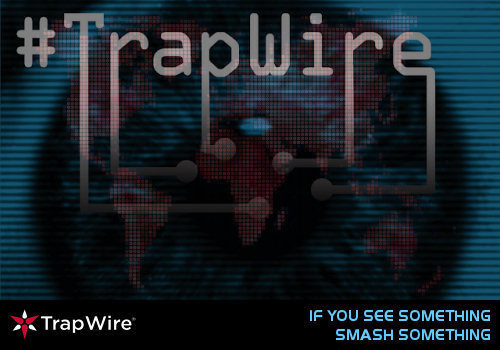Last week Wikileaks–remember them?–released a sheaf of documents about the Trapwire security system, which, depending on who you believe, is either a network of cameras being used to spy on everyone everywhere, or an ineffective bust more notable for shady business practices than any successful surveillance.
Is it being used for “monitoring every single person via facial recognition“? Probably not. Doesn’t matter. Let’s not kid ourselves: the point is that as cameras get cheaper and more connected and more ubiquitous, facial recognition gets more accurate, and data-mining software gets better, something like conspiracy theorists’ worst nightmarish fantasies of Trapwire will come to pass. I’ve said it before, I’ll say it again: this is only a matter of time, and not all that much of it.
Little pieces of the panopticon are already being built all around you. Even the New York Times has noticed this. PrivacySOS has a pretty good summary, too, but seeing as how it’s a whole week old, it’s already quite out of date:
https://twitter.com/csoghoian/status/235463956884504578
Oh, and in case the prospect of ubiquitous cameras with automatic facial recognition connected to enormous databases aren’t enough–if even the ‘floating eye’ military spy blimps now being used to patrol America’s borders, and the surveillance drones being adopted en masse by police forces everywhere, are not yet sufficient to trigger a certain baseline level of paranoia in you–just remember that governments everywhere are busy trying to hack into computers, too.
Consider Duqu, and Flame, and Gauss, and that mysterious payload. Consider FinFisher, described as “Governmental IT Intrusion and Remote Monitoring Solutions” by its distributors Gamma International; recently deconstructed by the University of Toronto’s Citizen Lab, its spoor has been discovered in at least 10 countries to date. Then consider what their successors will look like in five years’ time.
We could and hopefully will build more secure computers, but there’s not a lot we can do about the oncoming surveillance society. The tech is simply getting too good too fast. But for our future to be anything other than dystopian, this surveillance has to be two-way. It may be too much to ask that the powerful have less privacy than the powerless, but at the very least, governments must be at least as subject as their citizens to transparency and surveillance. Of course there are things that they should be able to keep secret–but the same is true of those they govern.
Join 10k+ tech and VC leaders for growth and connections at Disrupt 2025
Netflix, Box, a16z, ElevenLabs, Wayve, Hugging Face, Elad Gil, Vinod Khosla — just some of the 250+ heavy hitters leading 200+ sessions designed to deliver the insights that fuel startup growth and sharpen your edge. Don’t miss the 20th anniversary of TechCrunch, and a chance to learn from the top voices in tech. Grab your ticket before doors open to save up to $444.
Join 10k+ tech and VC leaders for growth and connections at Disrupt 2025
Netflix, Box, a16z, ElevenLabs, Wayve, Hugging Face, Elad Gil, Vinod Khosla — just some of the 250+ heavy hitters leading 200+ sessions designed to deliver the insights that fuel startup growth and sharpen your edge. Don’t miss a chance to learn from the top voices in tech. Grab your ticket before doors open to save up to $444.
Instead, even relatively enlightened governments are becoming, if anything, more secretive than ever. Did you know that the Obama administration has persecuted more whistleblowers than every other presidency in history combined? Did you know that (PDF) government security classification activities alone cost more than $10 billion a year? These are not exactly statistics that fill me with hope for our panopticon future. In the name of so-called security, we’re charging headlong into a future filled with one-way mirrors behind which the rich spy on the poor, and the strong on the weak. It’s a disconcerting thought.
Image credit: watchingfrogsboil, Flickr.


